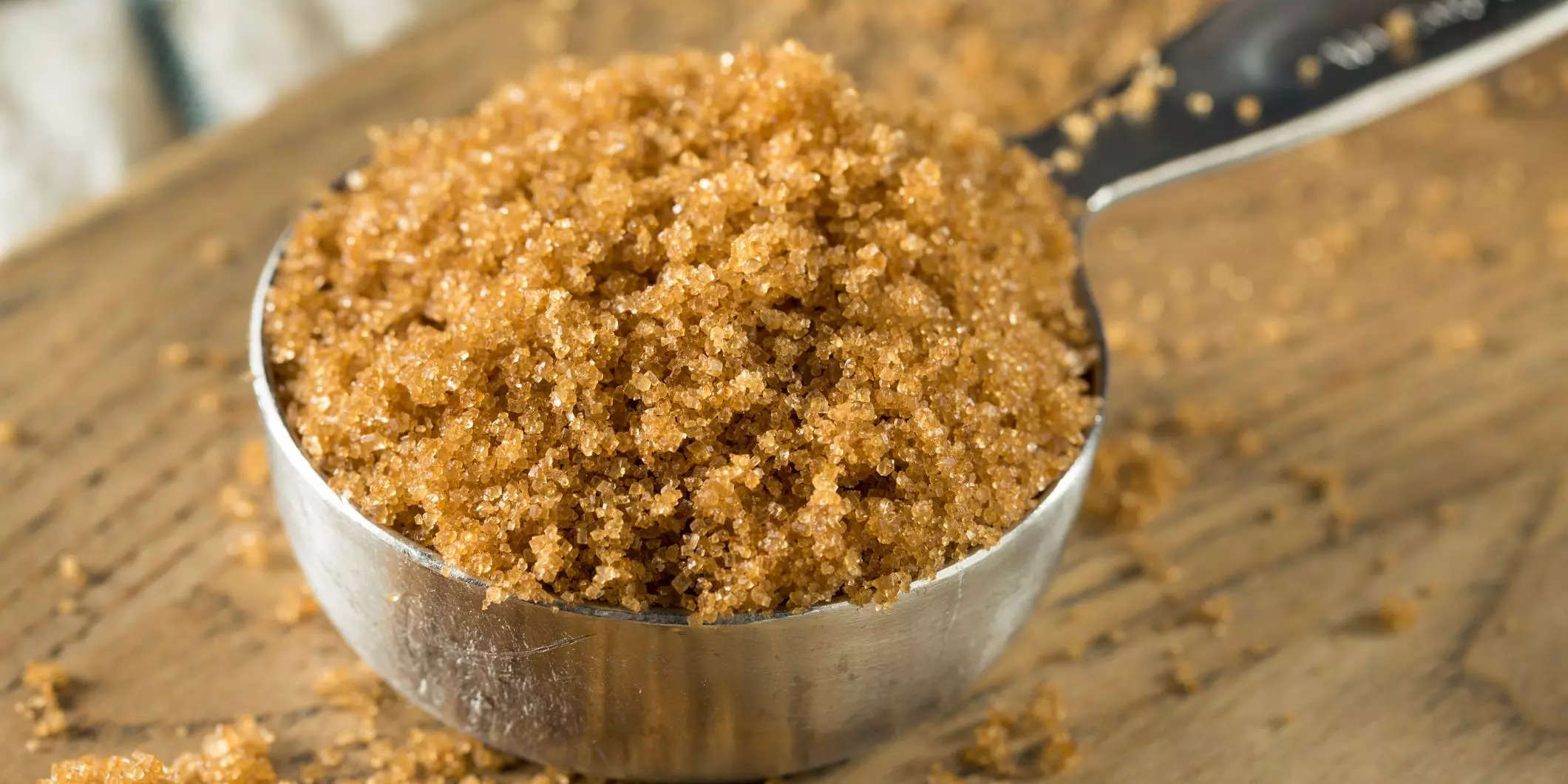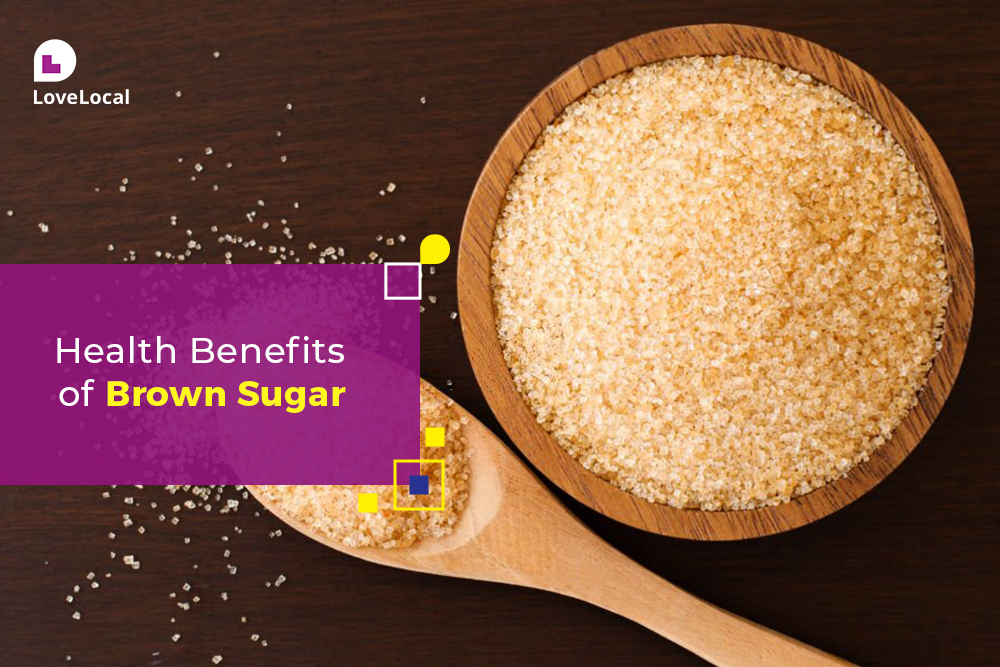Brown sugar is a ubiquitous ingredient found in kitchens worldwide, known for its rich, caramel-like flavor and its ability to sweeten everything from cookies and cakes to coffee and tea. While it is most commonly associated with indulgence and decadence, brown sugar also has a surprising side – it offers several nutritional benefits that might not be immediately apparent. Today we will delve into the world of benefits of brown sugar, uncovering its nutritional profile, health advantages, and dispelling some common myths.
What Exactly is Brown Sugar?
Before we start exploring the nutritional benefits of brown sugar, let’s establish what brown sugar is and how it differs from its white counterpart. White sugar and molasses are often combined to create brown sugar. The molasses content is responsible for the distinctive color, flavor, and moisture of brown sugar.

Types of Brown Sugar
Brown sugar comes in various forms, each with its unique characteristics and uses. Here are some of the most common forms of brown sugar:
- Light Brown Sugar: Light brown sugar has a mild molasses flavor and is the most commonly used form of brown sugar. It is made by mixing white sugar with a smaller amount of molasses. It is versatile and benefits of brown sugar is often used in baking, as well as in sweet and savory dishes.
- Dark Brown Sugar: Dark brown sugar has a stronger molasses flavor and a deeper color compared to light brown sugar. It contains a higher proportion of molasses, which gives it its distinctive characteristics. The advantages of brown sugar are commonly used in recipes where a more intense flavor is desired, such as gingerbread cookies or barbecue sauces.
- Demerara Sugar: Demerara sugar is a type of brown sugar with larger crystals and a natural golden color. This benefit of brown sugar is often used as a topping for baked goods like muffins and scones, as well as in beverages like coffee and tea because of the light toffee flavor in it.
- Organic Brown Sugar: Organic brown sugar is produced from organically grown sugar cane or sugar beets. Organic brown sugar’s benefit is that it is typically less processed and may have a more natural, earthy flavor. It can come in various shades, from light to dark, depending on the processing method.
The Nutritional Composition of Brown Sugar
To understand the nutritional benefits of brown sugar, it’s essential to examine its composition. In one tablespoon of brown sugar (which is roughly equivalent to 13 grams), you can expect to find the following nutrients:
- Calories: 52
- Carbohydrates: 13.5 grams
- Sugars: 11.1 grams
- Calcium: 17 milligrams
- Potassium: 16 milligrams
- Iron: 0.04 milligrams
- Magnesium: 2 milligrams
- Phosphorus: 3 milligrams
It’s crucial to acknowledge that the primary constituents of brown sugar are carbohydrates and sugars. However, it does contain trace amounts of several essential minerals, including calcium, potassium, iron, magnesium, and phosphorus.
:max_bytes(150000):strip_icc()/230511_LightorDarkBrownSugar_ddmfs_4x3_2404-8bd53810c76d4ac1b2db0cd83e7fb88a.jpg)
The Brown Sugar Health Benefits
1. Source of Quick Energy
Brown sugar is an excellent source of quick energy due to its high carbohydrate content. When you need an instant energy boost, brown sugar benefits can come to the rescue, making it a preferred choice for athletes and individuals requiring a rapid infusion of energy.
2. Trace Mineral Contribution
While the benefits of brown sugar may lack the major source of minerals, it does provide trace amounts of important ones like calcium, potassium, iron, magnesium, and phosphorus. These minerals play pivotal roles in various bodily functions, ranging from maintaining bone health to supporting muscle and nerve function.
3. Antioxidant Properties
The molasses in brown sugar contains antioxidants. These benefits of brown sugar help protect your cells from oxidative damage caused by free radicals. By incorporating foods with antioxidant properties into your diet, you may reduce the risk of chronic diseases over time.
4. Retains Natural Nutrients
Unlike the refining process for white sugar, which strips it of most of its natural nutrients, brown sugar retains some of its original molasses content. Consequently, it manages to preserve more of its natural nutrients thus there are few benefits of brown sugar which defeats its refined counterpart.
5. Flavor Enhancement
One often-overlooked benefit of brown sugar is its unique flavor profile, featuring caramel and toffee undertones. This distinctive taste can enhance the palatability of a wide range of dishes. By making your meals more enjoyable, brown sugar can indirectly support healthier eating habits, such as adding it to oatmeal, yogurt, or whole-grain bread.
Dispelling Common Myths About Brown Sugar
Now that we’ve explored the health benefits of brown sugar, it’s essential to address some common myths and misconceptions about brown sugar:
1. Brown Sugar is a Healthier Alternative to White Sugar
There must be some benefits of brown sugar over white sugar but it’s important to recognize that it is not a substantially healthier alternative. Both sugars are calorie-dense and can contribute to weight gain when consumed excessively bursting the myth that brown sugar is good for weight loss. Therefore, moderation remains key in any diet.
2. Brown Sugar is Suitable for Diabetics
Individuals with diabetes must monitor their sugar intake carefully. Brown sugar, much like white sugar, can cause spikes in blood sugar levels when consumed in excess. It is not a safe alternative for those with diabetes, who should consult their healthcare provider or a registered dietitian for tailored guidance on sugar consumption.
In Conclusion
In conclusion, brown sugar is a versatile sweetener that not only adds flavor and depth to various culinary creations but there are numerous benefits of brown sugar. However, it is crucial to remember that brown sugar, like any sugar, should be consumed in moderation due to its high-calorie content. To make healthier choices, consider alternative sweeteners like honey, maple syrup, or stevia. If you have specific health concerns or dietary restrictions, always consult with a healthcare professional or a registered dietitian for personalized dietary advice.
So, the next time you reach for brown sugar in your pantry, you can appreciate not only its delightful taste but also the nuanced nutritional benefits it brings to your dishes. Enjoy it responsibly as part of a balanced diet and savor the sweet moments it adds to your culinary adventures.



